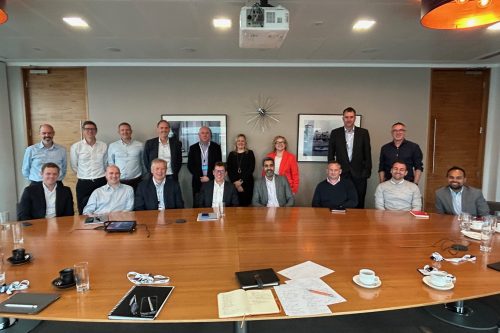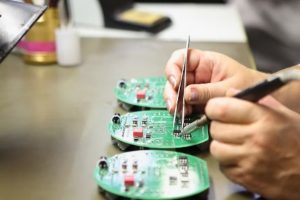Technology headwinds delaying investment decisions

Technology can sometimes be seen simplistically as the solution to growth challenges facing a business and, indeed, the wider economy.
That can range from using technology to transform business performance and open up new markets through to investors hoping to “find the next Facebook”.
But the reality is somewhat more nuanced, as the region’s Rainmakers who came together at a round table sponsored by the Win Academy discussed.
Stephen Johnson, investment director at Mercia, which has a technology-heavy portfolio, said the last couple of years have been affected by headwinds that have delayed buying decisions.
“If it’s a big ticket software product, they’re waiting to see what happens in the market,” he said. “They’re asking ‘is somebody going to come out with a product that beats the others?’ so they’re not going to commit to a big transformation program to roll out a new product.
“That’s the headwind. The tailwind is companies are trying to disrupt. If there’s a even a glimmer of a use case for LLMs then a lot of our software companies are building them into their products. Within the B2B software setting, you need to adopt it or someone else will.
“Customers are now much more willing to adopt AI. A lot of people are more comfortable with it, particularly in healthcare, than they were two or three years ago, which is really helpful.”

Ben Cartwright
Ben Cartwright, director at Beech Tree PE, has been encouraging the business leaders he works with to take a pragmatic approach to adopting new technologies.
He said: “In service businesses, we’ve encouraged people not to get intimidated by having to implement a huge transformational change. Sometimes starting small can be very effective as well.
“What are the low hanging fruit that you can use AI to do, which takes out half an hour of someone’s day? Replicating that over hundreds of staff makes a huge difference.
“Clearly there are use cases for global transformation projects, but it doesn’t have to be that. The price point to have AI tools now are such that you can deploy them on relatively small businesses, and off the shelf products using AI tools are actually very readily available, and can make a big difference.”
The pace of change of technology, and the different levels of familiarity which can often be generational, can invert where the knowledge and experience lies within a business, including in professional services themselves.

“If you can create an environment where there’s a bit of a sandbox, a safe space to try things, you can see what works and what doesn’t.
“Those junior or up-and-coming staff can be the ones who spearhead that, as they’ll be just so much more alive to the possibilities than us. That’s a retention tool and it’s creating innovation in your business.”
Andy Lawton-Smith, partner at Fieldfisher, believes that it will be an “exciting next phase of development for the business” to see how AI can be deployed and what sort of cost activities can be done.
He added: “The challenge for us is to make sure we don’t push all the value of that to our clients and we managed to retain something of that investment for ourselves”.










